Supporting all Students in the Metaverse
Prof. Colette Mazzucelli
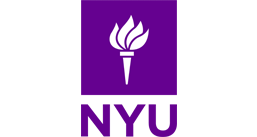
Supporting Students in the Metaverse: Stories of Impact
Introduction: In this inspiring video, we delve into the world of education and empowerment, exploring the remarkable stories of students participating in the "Lead Impact" initiative. Hosted by Prof. Colette Mazzucchelli, the founder and principal of "Lead Impact," we hear from three young individuals who are making a significant impact in their respective communities.
-
Diala From East Jerusalem: Meet Diala Khatib, a 16-year-old Palestinian student from historic East Jerusalem. Diala, a candidate in the "Lead Impact" certificate program, shares her journey of transformation. Inspired by her coursework on fragile and conflict-affected countries, responsible leadership, ethics, and regenerative urbanism, Diala embarked on a mission to create positive change. She formed a school club aimed at promoting women's voices and environmental consciousness. Through activities like music, Dabka dances, poetry, and recycling projects, she strives to empower girls and raise awareness about gender equality and sustainability.
-
Haya Al-Haran from Northeast Syria: Haya Al-Haran, based in Northeast Syria, sheds light on the environmental challenges her community faces, exacerbated by drought and pollution from makeshift oil refineries. As part of her Lead Impact field placement, Haya aims to garner international support and attract expertise to address these pressing issues. With a focus on "SDG 5 Gender Equality," she emphasizes the importance of educating and empowering women to create sustainable solutions.
-
Roya Mussawi from Afghanistan: Roya Mussawi, a member of the Afghan diaspora, presents a project focused on managing plastic waste in Kabul, Afghanistan. With the support of Lead Impact, Roya seeks to connect with local NGOs and raise awareness about the harmful effects of plastic pollution. She promotes the production of fabric bags as an eco-friendly alternative and emphasizes the significance of the "3Rs" (reduce, reuse, recycle). Roya envisions a sustainable future for her community and believes in the power of education and women's empowerment.
Insights from Professors Jamal and Omar: Professors Jamal and Omar express their optimism about the Lead Impact program's ability to make a substantial difference in the lives of students and their communities. They highlight the importance of supporting education and empowering young individuals to drive positive change. They also discuss the potential for expanding the program's reach to more schools and regions.
This video serves as a testament to the incredible impact that education and responsible leadership can have in fragile and conflict-affected areas. These students, guided by the Lead Impact program, are shaping a brighter future for their communities and embodying the principles of sustainability, gender equality, and ethical leadership.
Speakers Info
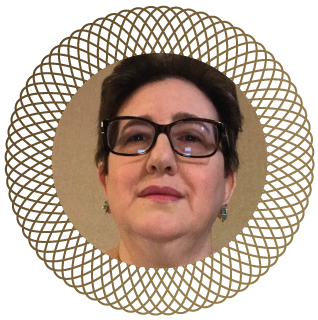
Prof. Colette Mazzucelli 2nd Vice President and Steward at New York University
Prof. Colette Mazzucelli is a distinguished professional with a remarkable career spanning various roles and achievements. Currently serving as the 2nd Vice President of ACT-UAW Local 7902, she represents New York University in this influential union, advocating for the rights and interests of part-time faculty, student workers, and health service employees from The New School, as well as adjunct faculty at New York University, a role she has held since 2023.
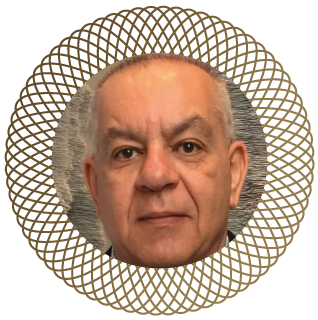
Jamal Al Aref Managing Director, Owner at ALAREF Associates
Jamal A. is a dedicated professional with over 25 years of experience in managing small, medium, and large-scale community development programs within diverse work environments in the private, UN, and International NGO sectors. He has successfully collaborated with prominent organizations such as USAID, the World Bank, and ECHO, consistently delivering exceptional results.
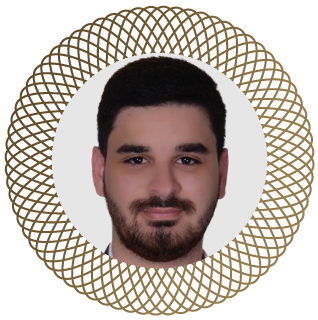
Omar Abu Layla
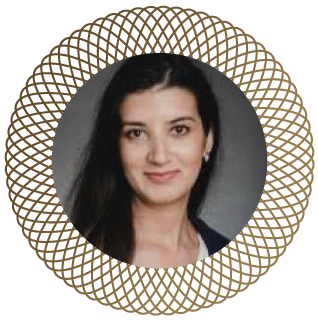
Rukhsar Azamee Senior Analyst at EY
Rukhsar Azamee is a motivated and dynamic professional with excellent critical thinking and communication skills. With a verifiable history of contributing directly to business management and company growth, Rukhsar excels in introducing innovative solutions that maximize long-term economic impact for both clients and employers. Her passion lies in purpose-driven companies, where she can leverage her skill set to contribute to sustainable growth.
Session Script: Supporting all Students in the Metaverse
Introduction
My name is Prof. Colette Mazzucchelli, the founder and principal of “Lead impact.” It is my pleasure to introduce Diala Khatib a Palestinian student at a historic school in East Jerusalem.
Diala’s facilitator is Jamal al-Aref a member of the lead Impacts International Advisory Board. Diala is a candidate in the lead impact certificate program. Fragile and conflict-affected countries, responsible leadership, ethics, and regenerative urbanism. As a field placement to complement the certificate program content. Diala explains the formation of a school club to promote activities that speak to enhancing women's voices in her local area, and to promote recycling to nurture the environment. This initiative to form a club, engage in specific activities, speak to lead impacts, focus on sustainable development goals, SDG 4: Quality, and as well as SDG: sustainable cities and communities.
Diala, you may begin your presentation.
Presenting Quality & Sustainability of Education: Diala From Palestine
So I took three modules over two modules, me and my other three colleagues the lead impact the gender empowerment and the conflict. Fraud and conflict-affected countries. So, due to these modules are starting these modules, we decided to make the two topics that we took about, or we started about together and establishing a school club. So because we consider our school as a community within a larger community. So we decided to make this club at the school because we want to bring girls from different cultures because the school brings girls from different cultures together and backgrounds.
So we decided to bring them together and gather together and make these activities for them. First. We decided to make I want to tell you about the club's activities. First, we want to make music and activities, Dabka dances, artistic activities, poetry, and music. And also we want to make recycling project paper recycling project. Also, we want to make we want to plant traditional plants in our country, in our policy and country. So these activities will be somehow fun for the girls. We aim to relieve stress to girls through these activities, like music and, singing together, playing together, making a place for them, and poetry also about the gender empowerment ports want to make more small awareness lectures. So we want to explain for the girls about the lead impact program and the courses. We took with them, and how we learned via zoom, and we want to raise awareness for girls about gender empowerment and woman empowerment, and about sexual harassment, and how to protect themselves. We will use everything that we learn with the lead impact zoom courses, and maybe we're gonna spread it to other schools in the future.
Haya Explanation of SDG 5 Gender Equality
It is my pleasure to introduce Haya Al-Haran, who is based in Northeast Syria. Haya’s facilitator is Omar Abu Lyla. A member of Lead impacts International Advisory Board. Hiya takes the responsibility to highlight the environmental degradation and the accompanying drought in her community. She explains an initiative to facilitate international support for the local development and to attract expertise in international organizations as the area facilities. The challenges of climate change focus is on ‘SDG 5 Gender Acquaintances’. Women assume most of the family expenses given the significant loss of life among males during the 11 years of brutal war in Syria under the Assad regime. Haya please begin your presentation.
Presentation Regarding the Struggle of third world countries to maintain the standard of higher education: Haya Al Haran
Thank you. Hello, everyone. I hope my voice is clear. So Maker is what the world needs now so we are glad to be able to mention Northeast Syria. Main issues through leading backed initiatives in order to sick problems, to the solution, or at least highlight them, to make the world aware of what happens there. I'll thank you all thanks to Professor, Mr.Omer and all one in here. Give me the opportunity to present this presentation. at the first step of the initiative in leading them back to our concentration, and the North is part of Syria.
So we're this, involving 3 provinces, and Hasaka, which contained 2 main cities, a commercially, and Raqqa city and Deir Ezza. And their restore and moving so segmentation in strategy. The proposal is, so to understand associated segmentation.
There the inhabitants are are submitting to Muslims and Christian Muslims. We have Arabs and Kurds on the Christian side we have Armenians and Assyrians strategy. I'd like to share with you those photos related to a recent celebration done on the left you can see women celebrating Woman's Day, and on the right is related to the Easter celebration. While the Christian girls are offering the prayer in a church there.
Now big concepts. it's just been 11 years of crisis in Syria. People and environments are exhausted, and as a consequence of the world, the war there was larger-scale immigration and the supply among males as a corollary in most of these cases, a woman has to assume family expenses.
Huge loss of vegetation, given the pollution fires in air due the numerous makeshift oil refineries that sprang up each sprewing waste into ground. Including heavy metal that is known as human carcinogens such as Mercury, lead and arsenic.
All these developments lead to increased sickness. climate change and drought in the north East Syria, and we are when we are mentioning the drought who are mentioning another huge problem.
That will lead to an increase in the poverty great there because most people there are counting on agriculture which was chosen to spotlight their empowerment and regenerated benefits. So regarding very generative organisms, we can see this is status traffic. So, it's shown what we mentioned the makeshift oil refinery. You can imagine, I think that the impact on the environment and health moving to the next slide. Also, these three photos are related to the same issue starting from the last the same again. we can see the still rotating in their resort again a mixture of all the refineries in the middle. It's Al Qamishli in the Henson land. You can see a generator and the fume that's going out from it. These generators are actually existing everywhere in the city as do that as a result of the war in the absence of insistency.
That's what people use to get extricity. This photo is related to a traffic jam in Al Raqqa City. All these photos are raised so in the root cause of the pollution there. We can see that in general, people there are not aware of the side effects of this work on health and the environment. As we just say that the Given the evolved context in Syria, we consider the following support from Consider the concerned Organization, advice and expertise to face development issues, tangible and intangible support, and possible solutions the organizations suggest. Our responsibility is to raise awareness, which is a costly undertaking without funding to achieve the next State to address in education, health, and pollution in North-East Syria also, you can see this the attached photo, I activity. It was an activity behind the United States organisation, sequencing and picture of plans in Main Street in Al Qamishli city.
Moving to gender empowerment, In particular women empowerment. We have to hide three main points: education, awareness, and opportunity. Without education, you cannot empower women so the base is to educate women, teach them, and creates an education-base you need to conduct awareness to make sure people are aware of how the importance of patieducation in women and eventually this will lead to more opportunities.
Our hypothesis generally in Syria is the main obstacle for women's education, is poverty. It is essential to create lead impact solutions to overcome this issue. Applying E learning in M city is a stratigic way to resolve this concern.
We need eduation equipments for instance, handsets, laptop abbots, and so on. Then we need the pre-education forso to display the contents, and we did an awareness to increase the number of participants. We need awareness and also established responsible entity for tickets, forge and encouragement initiatives. Finally our Lastly, we need assuring sustainability. So without sustainability, we cannot see the result. We need a place to us. We cannot contact this for a few months. We need to assure the sustainability, of the breaks. 3 or 5 years to test the impact and that's it for North East Syria. I'll thank you all for listening hopefully this presentation will attract your attention to the region.
SDG 11 sustainable cities and communities Presentation by Roya Mussawi
Sustainable development
Thank you very much for the introduction. I want to present the management of the Plastic waste Lead and Impact project and coal. Although Afghanistan is not an industrial country, Afghanistan has been listed as the ‘most polluted country in the world’, and Afghanistan has been dealing with tickets of war and the pollution generated by the people in the country, specifically, and especially carbon.
The next page. I want to talk briefly about the concept of this project. The massive importation of plastic, from China and Pakistan, is a challenge for Afghanistan. There is no environmental solution for plastic usage. People burn plastic to warm their houses in the winter seasons, Which affects the weather and the short and long term. Most plastic waste come from using plastic bags for shopping. In this project, we want to highlight how we can copeout with the usage of reducing the usage of plastic.
The use of plastic bag is a significant problem in Afghanistan as an alternative Afghanhas begun to introduce the user use of fabric bags. Afghan women are becoming involved in the production of fabric packs. Fabric bags are being introduced to the market first through the bakeries because the bakeries are widely using the plastic and bakreies, and it's the main resource of using the plastic and among the CGS, and later we would expand the market by targeting the groceries and other potential venues.
Simultaneously lead impact candidates and Afghan diaspora with contact in the country. There was also media and social media company to raise awareness about the harmful effect of using plastic bags as well as the benefits of using Fabric Bags. because people may haven't realized the thems of the plastic That's why they use the plastic and very huge numbers of harmful plastic.
What is the harm of plastic usage? Plastic residues cause numerous problems in everyday of Afghanistan, everyday life of Afghans, including cancer, congenital diseases, and disabilities and immune system problems, respiration difficulties and childhood development issues.
We cannot believe how people, how a high usage of the plastic in Kabul. their usage of plastic is in toons, and it's a huge number the daily usage of philosophy max and the country is 130.01 including 107.52 tons of plastic bottles generated, and cobble approximately to 26 tons of plastic per day plastic rest is only in Kabul, and 21.5 tons of day per day. Plastic portals are burned by the citizens. Learning creates 0.285 tons of carbon dioxide per day.
Which statistically negatively affect the environment and the planet needs to need to be sustainable for the next generations. Based on the reports by “Health effect institutes’s state of the global air” Afghanistan has the highest Afghanistan has one of the highest per-capita death from air pollution in the world.
What is the goal of the project that we want to achieve? Community awareness about the harmful effects of plastic? We can do it through social media campaigns, and raise awareness in the communities through digital and traditional social media.
Women empowerment through the production of fabric bags.
3Rs reduce, reuse and recycle. What 3Rs stands for: reduce is the user It's the most important time that we the most important element of the use of plastic waste that we do not use the plastic.
The second element is used that raise awareness that we can reuse plastic, and this element also helps the people, not the save them. Don't use a lot don't produce a lot of waste also saves them money, and the most important element is recycling. To recycle something means that it will be transferred again into a raw material that can be shipped into a new item.
The next thing that we want to achieve and it's a project rule is a ‘ban on plastic bags’ when local government corporate hand people to understand the responsibilities toward their environment that they are responsible against the planet and against their environment. Regarding the implement. How we want to implement the strategies determined funding sources for the project. Up to three years of development. a major strategy for digital media, traditional media campaigns praise awareness about usage and harmful effects of plastic partnership with local women need NGO for production of fabric bag market assessment and the solution of fabric bags in bakeries, super markets and groceries stores. Explore strategies for the projects, financial viability and profit profitability medium to long term.
Role of Afghanistan Diaspora
1. Lead and mentor the E learning Field project innitiative with the local NGO.
2. Speak with the media and raise awareness.
3. Identify and talk with social media influencers. So these partners become our loudspeaker in reduction of plastic usage through digital campaigns, fundraising for the project.
This project may take a long time. the people that we raise awareness about the waste of the plastic because it has been decades that people have been using the plastic and changing the behaviour of the people is not easybut it will not be impossible thank you very much.
Insights by Jamal: Education of Girls in Jeruselum and Lead Impacts
Actually, he is a gigantic leap for the participating schools, girls, students, and their schools into the future. The girls are highly motivated and are very excited to be part of this program. Of this opportunity, they are given what they have been given, and the school administration as well as giving the girls. And thus within the lead impact program, therefore, support and encouragement.
Wonderful. Thank you so much. We sincerely appreciate that support, and we welcome the encouragement, as we think about future ways to collaborate. And we note your influence in making those local connections possible without those connections. It indeed is difficult for us to actually make our certificate programs have the resonance that we would like them to have the resonance in local areas and the resonance in terms of the dialogue. We create. So thank you again so so much.
If I can add one more. I think, Professor Collette, I am personally optimistic that we can carry forward this opportunity. This experience includes other schools within East Jerusalem. In the short future ahead. This is a very exciting experience, and we want to read it over to help a larger number of beneficiary students as much as possible.
Wonderful and given all of our mutual interests in education, and particularly in establishing the kinds of discussions with local schools. This is indeed good news, so we welcome this development.
North Syria, Women Education and Lead Impact: Explained by Prof. Omar
Training experience all the what we have in the past years they need now to run it from their way exactly what Haya right to show it. The now. we talk about the generations and the region. They are out of the indications. The NGOs in the region on the ground.
They're trying to save those generations from many effects on everyone around them, including the Radicals groups not only Islamic groups. I'm talking about many radical schools so that's our mission to support them, to stand with them, to give them all the chance or opportunities that we could offer them, including what the NGO like I am running again into the underground. Despite I am in Europe, living live in Europe but that's my responsibility. Not because I am, or all of us in this program? No, that they fought some things like professionality. Something is like a specific place for them more than to be in a college, or more than to be in an institute. It's like a bit of time they get a lot of that they connected, and they are able to continue and to be linked after they get in this experience.
Higher Education in Afghanistan amid the Current Crisis
As explained By Prof. Rukhsar:
I would like to highlight first the generation that was evacuated from Afghanistan and the people that they are currently leaving. They are in the process of leaving the country, and their lives are addressed. We are talking about a community of Afghans, a young generation well-educated with college degrees and extensive backgrounds and experience from Afghanistan that they are now living across the world. They are presenting themself as an asset to all the countries that they're living, and it's important to highlight that they have an education, they have experience. They have a network on the ground, and they know the inside out content of Afghanistan the contact of Afghanistan. This important point of history, I would call it lead impact plays. Such a crucial role, because lead impact not only empower this community, it helped them to learn to have the opportunity to explore education system, and E Learning from across the globe whatever countries that they are situated, now and they are located now, and at the same time it's an opportunity for Afghans, and especially the Diaspora community, to integrate in their new living through connecting with other people from this program, and expressing themselves and at the same time it's an opportunity for them to really connect with their own community about their own community with each other. For instance, in Afghan Coords, we have people from Pakistan. We have diasporas from Europe, from US and from different countries. We are building a community of Afghanistan itself. In a virtual world, what is very important to highlight the lead impact, also presented this opportunity for this cohort to identify a problem in Afghanistan and combine and merge two important sections together.
They are trying to help support climate change by introducing plastic management of plastic waste management in Afghanistan, and at the same time this co’ord is recognizing that empowerment of Afghan women is key at this point, and by involving Afghan women in producing fabric bags, it's another important issue that this cohort is focusing through this project. So to conclude in a larger picture, the lead impact is a key in putting together all these efforts, bringing together Afghans and also connecting them with the walts and giving them an opportunity to be involved in Afghanistan, and make a difference at large.
Freedom From Exclusion
Thank you so much, you know, as I listen to each of you, Jamal in East Jerusalem, Omor in Germany, speaking for northeast Syria, and Rushsar here in New York, and speaking for all in the Afghan Diaspora and the women of Afghanistan I'm. reminded of something I wrote over 20 years ago for the United Nations Chronicle and in that essay I talked about education and the freedom from exclusion. I think what we are trying to do in lead impact is to use the possibilities that technology in the community offers us to include all of those voices that we want to be heard to make the invisible visible and to heighten the awareness of the challenges that each of our areas, resp. and collectively face. This is really in my mind the meaning of the dignity of the person in human security.
When we speak about education and the freedom from exclusion, we must remind ourselves constantly of our responsibilities and those responsibilities. I think we all working to realize in lead impact together, and for that, I thank you all so much. It is exciting to contemplate how we can extend our initiatives into M. City, and for that reason, we also thank our partners, WHERS 2022 and Touch Cast all of those individuals in front and behind the scenes who make our dialoguing possible. So on that note.
Thank you all, and we look forward to future work together and to our collaborations.

